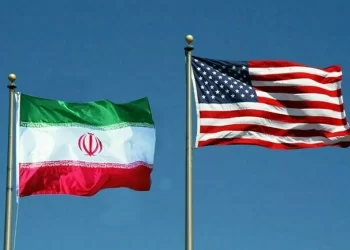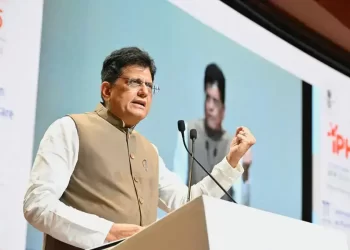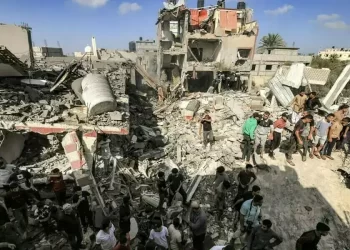MINA: – Saudi Arabia on Monday warned of a temperature spike in Makkah as Muslim pilgrims wrapped up the Hajj in searing conditions, with more than a dozen heat-related deaths confirmed.
One of the world’s largest religious gatherings unfolded during the oven-like Saudi summer again this year, and authorities recorded more than 2,700 cases of “heat exhaustion” on Sunday alone, the Saudi health ministry said.
On Monday, according to the Saudi weather service, temperatures reached 51.8 degrees Celsius (125 degrees Fahrenheit) at Makkah’s Grand Mosque, where pilgrims were circling the Kaaba, the large black cubic structure towards which all Muslims pray.
In nearby Mina, where a spokesman for the national meteorology service said the temperature was 46C, other pilgrims were throwing stones at three concrete walls – a ritual known as “stoning the devil” that is the last major step of the Hajj, while struggling under the burning sun.
Jordan’s foreign ministry said on Sunday that 14 Jordanian pilgrims had died “after suffering sun stroke due to the extreme heat wave”, and that 17 others were “missing”.
At least 19 Hajj pilgrims dead in Saudi Arabia
Iran reported the deaths of five pilgrims but did not specify the cause, while Senegal’s foreign ministry said that three others had died.
An Indonesian health ministry official, currently in Saudi Arabia, said 136 Indonesian pilgrims had died during the Hajj including at least three of heat stroke.
“The holy sites today record the highest temperatures since the beginning of Hajj… that may reach 49 degrees Celsius, and we advise the guests of God not to be exposed to the sun,” the health ministry said, according to state-affiliated Al-Ekhbariya channel.
The Saudi health ministry announced in a statement 2,764 cases of heat exhaustion on Sunday due to sun exposure and “non-compliance with guidelines”, which include taking shelter from the sun during the afternoon.
“Prevention is the most important, and the commitment of pilgrims not to go out at peak times except when necessary, or to use an umbrella, would reduce the incidence of heat exhaustion,” the statement said.
“Our health guidelines for the coming days are clear and easy: carry an umbrella, drink water regularly, and avoid exposure to the sun.”









